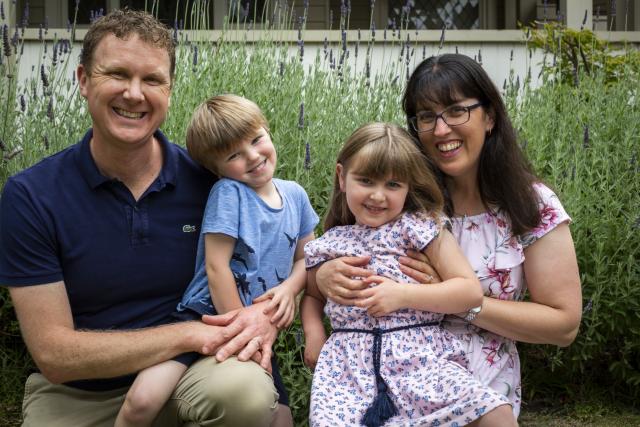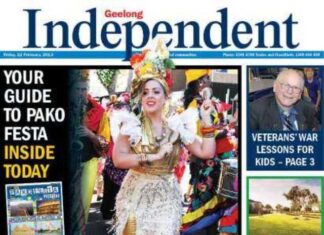A Geelong father will be sharing his experiences as part of the first ever advisory group formed to represent the needs of survivors of paediatric strokes and their families.
Tony Peacock will be one of 12 members of the Stroke Foundation’s committee, where he will use his experience with daughter Georgia’s paediatric stroke to help guide the foundation with the support it provides to families.
Georgia was just 11 months old when she suffered an aneurysm when a blood vessel burst in her brain.
Like one-in-three infants that suffer an aneurysm, Georgia also had a stroke.
“People think of stroke as an older person thing, but they affect children as well,” Tony said.
“You’re never lucky to have a stroke, but Georgia was as lucky as she could be as she was already in hospital in intensive care.
“She was in hospital for about four months, and after all that she had complications from the stroke.
“She’s coming up to eight [years old] now, and so for seven years she’s been having intense weekly therapy.”
Tony said Georgia had previously had “complete neglect” of the right side of her body, but was now considered high functioning and enjoyed playing tennis and going to school.
But it was his and wife Kim’s experiences in the early days of Georgia’s journey that he hoped to share with other parents going through similar times.
“It was not that long ago, but there wasn’t a lot of information out there,” he said.
“We knew it was never the right thing to do coming from health backgrounds, but we turned to doctor Google to find anything – scientific papers or whatever was out there – that gave us some sort of insight into possible outcomes and expectations we could have.
“It’s a very confusing time when you don’t know what’s going on.”
Tony said his family had been lucky to be connected with another family who had gone through a similar experience, and learned a lot from their journey.
“This is a space that’s been empty,” he said.
“The committee is made up of people who are parents or adults who had strokes themselves when they were young, so everyone is bringing their own experiences.
“We’re there to help the Stroke Foundation as it builds up its services around paediatric strokes and build resources for parents.
“It’s all about identifying what are the challenges families face when they are in that situation and then provide guidance.
“These things make a difference to families and children who are going through treatment … and it’s something I’m proud to be involved in.”
Stroke Foundation acting executive director of stroke services Eamonn O’Toole said the members, who have been selected from all over the country, will meet four times a year to inform Stroke Foundation activities and projects.
Their valuable insight will also assist with research which has the potential to benefit future generations, he said.
“Approximately 600 Australian children have a stroke each year,” Eamonn said.
“Awareness of paediatric stroke is gradually growing amongst health professionals and in the community, largely driven by passionate people with lived experience, including those in this group.
“But there is much more work to be done to ensure children receive their stroke diagnosis and treatment faster to improve their chances of a better recovery.”
The advisory group’s lived experience represents different stages of the stroke journey – from the early days of navigating information and a child’s specific needs to adult survivors who can reflect on the physical, cognitive and emotional challenges they faced while growing up.
Stroke strikes the brain and can change lives in an instant. Between 50 and 85 per cent of childhood stroke survivors will experience disabilities that last a lifetime.
According to the Stroke Foundation, approximately 600 Australian children have a stroke each year.









